Covid in Europe: How much testing do other countries do?
- Published
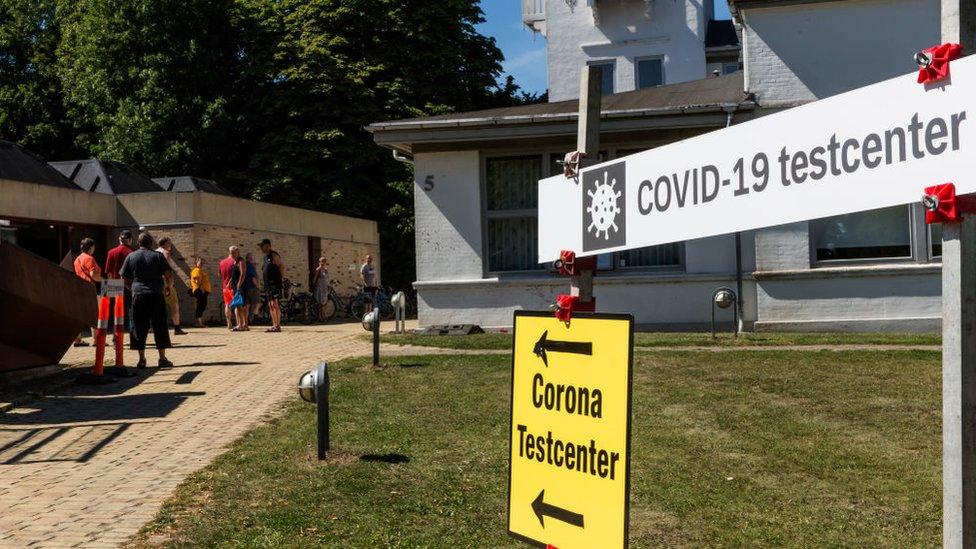
Mobile testing centre in Denmark
A sharp rise in new coronavirus cases both in the UK and the rest of Europe has led to an increase in demand for coronavirus tests.
Prime Minister Boris Johnson has defended the UK government's testing system, claiming the country has carried out "more tests than any other European country".
So, what do the figures say and how does testing work in other countries?
Who has done the most tests?
According to data collected by the European Centre for Disease Prevention and Control (ECDC) - an EU agency - the UK has conducted more tests than any other European country.
Comparisons between countries on something like testing is not perfect, because some countries report less often and there might be some differences in methodology.
For example, the data the ECDC collects on the UK includes "surveillance" tests used to track where the virus is spreading, but it is not clear how many other countries do the same.
Between 9 March and 20 September, its data shows:
The UK did more than 19.7m tests
Germany did 15.5m tests
Italy did 10m tests
France did 10.6m tests
These tests are just antigen tests - the ones you use to find out if you currently have the virus.
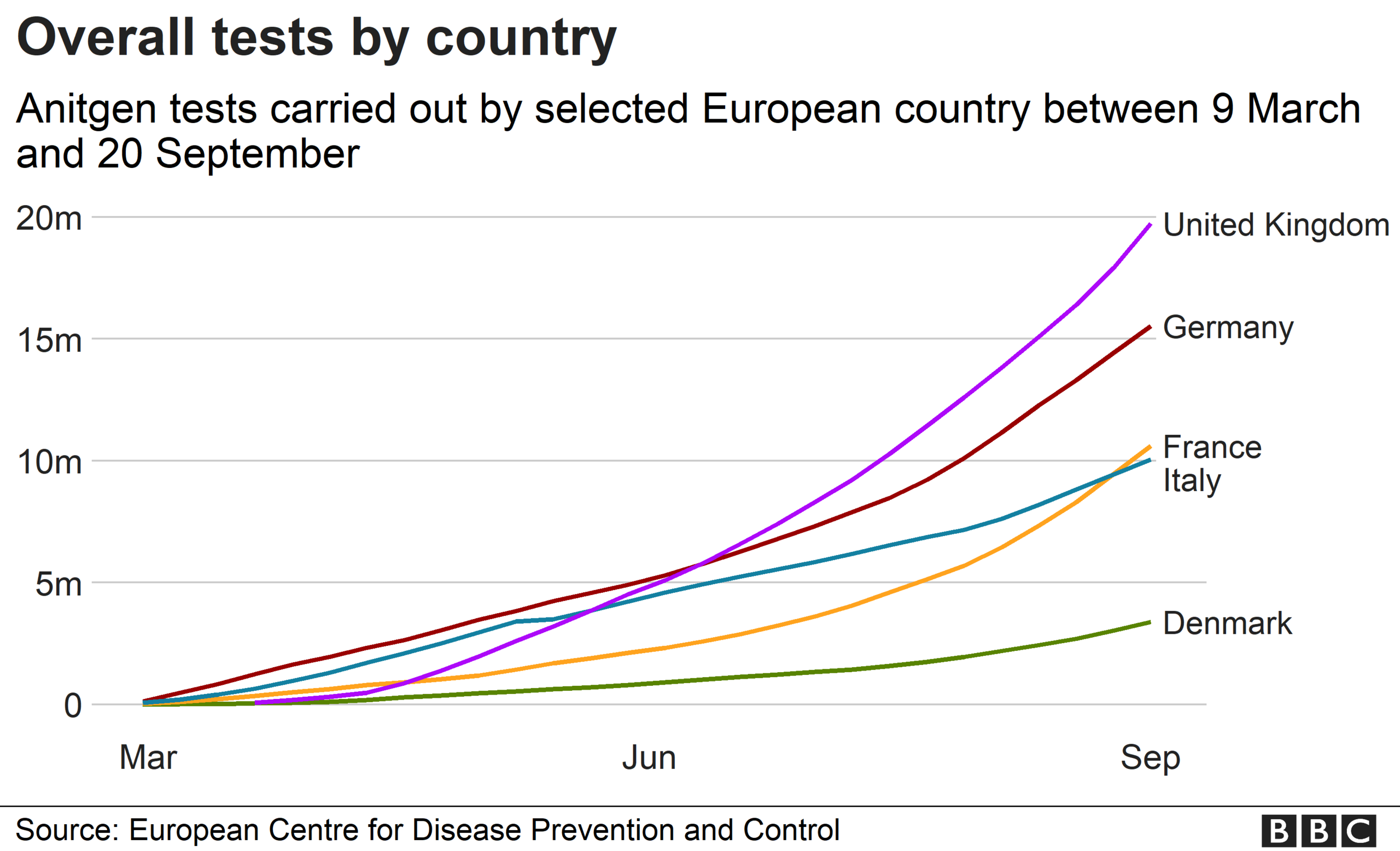
What about relative to population?
Looking at overall numbers is not entirely helpful because no country has the exact same-sized population.
Denmark, for example, has conducted 3.4m tests - just a sixth of what the UK has done. However, its population of 5.6m is very small compared with the UK.
That is why we look at per capita numbers - or the number of tests conducted for every 1,000 people.
On this, the UK still performs well, having done 296 tests for every 1,000 people between 9 March and 20 September. This is better than Germany (187 per 1,000) and France (158 per 1,000).
However, four countries in Europe have higher rates of testing, including Denmark, with 582 tests per 1,000 people.
What it the rate of testing right now?
Mr Johnson frequently refers to daily testing rates. This is the number of tests conducted in the most recent day, relative to the population.
The European Centre for Disease Prevention and Control produces a weekly rate of testing which, once again, the UK does well on.
In the week ending 20 September:
UK - 27 tests per 1,000
France - 17 tests per 1,000
Germany - 13 tests per 1,000
Spain - 16 tests per 1,000
However, once again it is beaten by the same four nations: Malta, Cyprus, Lithuania and Denmark.
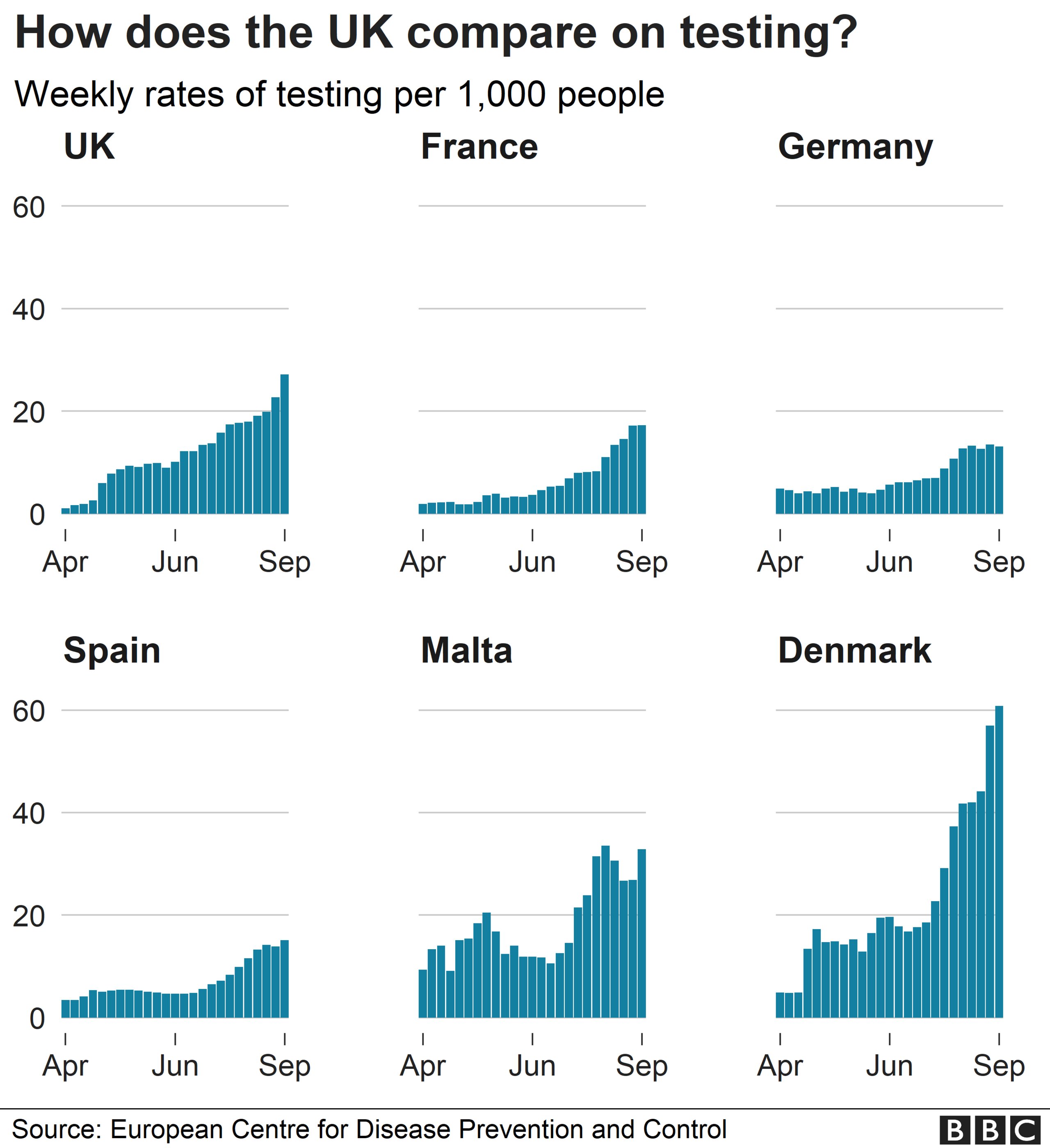
With many parts of the UK and Europe seeing a spike in cases, what also matters - and greatly varies across countries - is who can get tested, how quickly and where, and how long someone has to wait for the result.
We looked into the situation in Denmark, France and Germany.
Denmark
Denmark has carried out more tests per capita than any other country in Europe.
Almost a half of all Danes have been tested so far, many of them several times, according to the State Serum Institute (SSI), the country's infectious disease body.
The number of daily tests continues to climb, and the SSI says it will soon be able to test 1.5% of the total population every day.
Testing is carried out in walk-in or drive-through centres around the country. There are also testing centres at the airports, although testing on arrival is not compulsory.
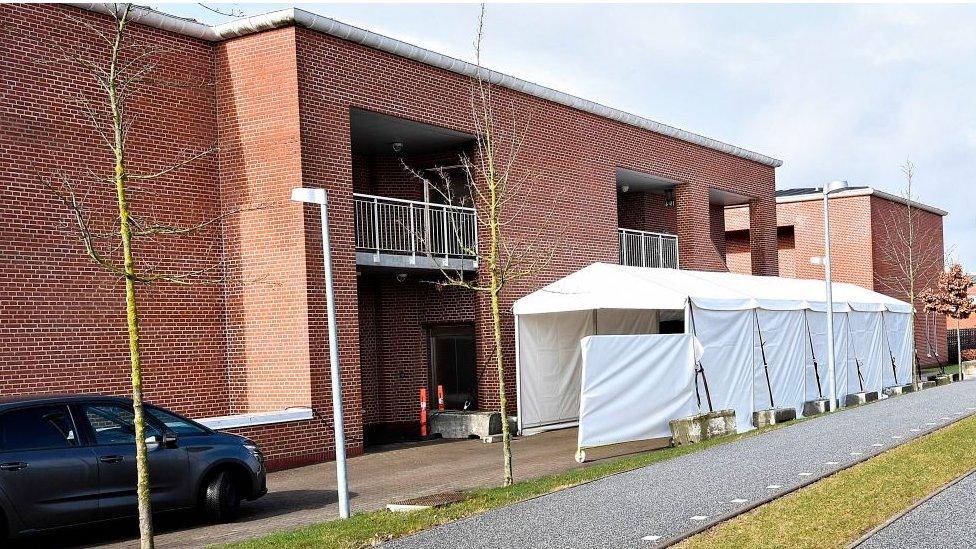
Any Danish citizen can book a test online using their digital ID number, while people who don't have an ID number can book by calling a number on the government website.
Availability of appointments does vary across the country, but it is possible to get tested even without an appointment in several walk-in centres.
SSI says everyone who gets tested is guaranteed a result within 72 hours, although most results are given much sooner, within 30 hours or less.
France
Testing in France is carried out in a testing centre, and there are around 3,500 of them across the country.
Some testing centres are overwhelmed with demand, and on 16 September staff at around 20 health testing clinics in southern France went on strike, saying the Covid-19 outbreak had left them overworked and at risk, without being properly compensated.
Anyone can request a test in France, regardless of whether they are displaying symptoms or not. The prime minister announced on 11 September that people with symptoms, those who have been in contact with an infected person, and medical staff will have priority, with reserved slots in testing facilities.
The government says 75% tests results are available within 48 hours.
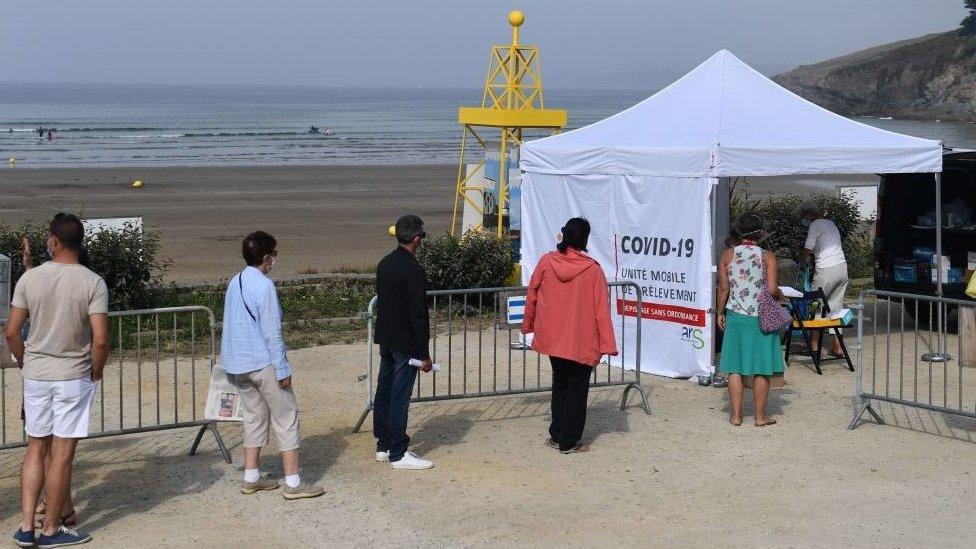
If you display symptoms of coronavirus, you have to self-isolate but only for seven rather than 14 days, as is mandatory in most other countries in Europe.
Most people who are self-isolating receive a compensation through sick pay. The amount depends on employment status and profession.
Germany
Germany established testing capacity early in the pandemic. There has been no shortage of tests and the level of testing has been high from the start.
German government says there is a spare capacity of 400,000 tests per week at the moment.
Testing is run by Germany's 16 federal states, so the system varies slightly from state to state, but they all follow the recommendations from the The Robert Koch Institute (RKI), the country's public health institute.
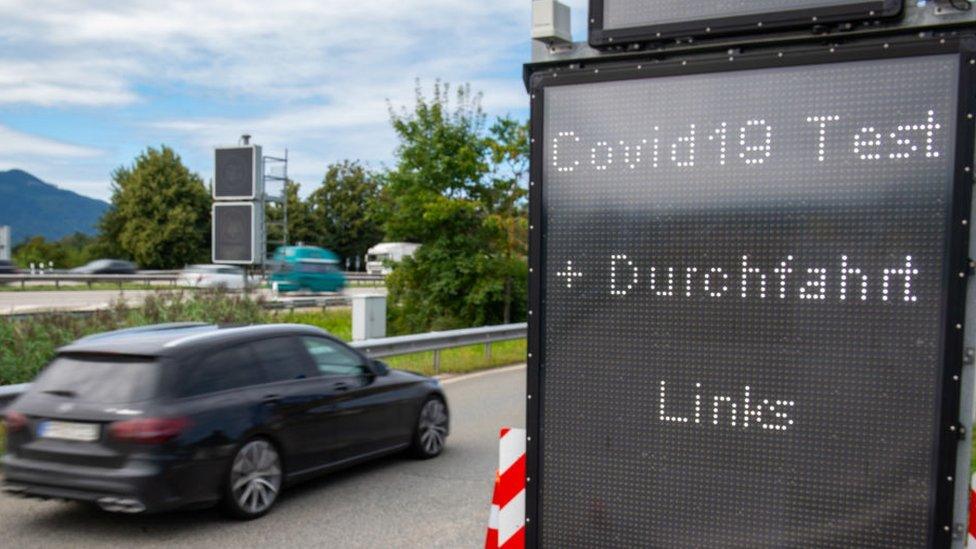
RKI recommends testing everyone with symptoms, or those who have been in touch with someone who has coronavirus. In addition, it recommends testing in hospitals, retirement homes or similar institutions as well as schools, nurseries and refugee homes, if they have an outbreak.
In all the states, people with coronavirus symptoms go to their GP. A test can be done at the surgery or a patient can be sent to a test centre.
The government says 75% of test results are given within one day.
If someone gets a positive test result, they receive an administrative order to self-isolate. Anyone who is self-isolating because of an administrative order, is paid their full salary for up to six weeks.

